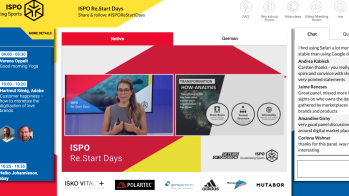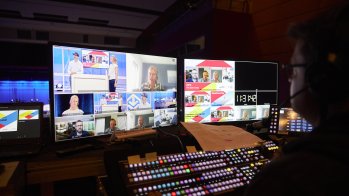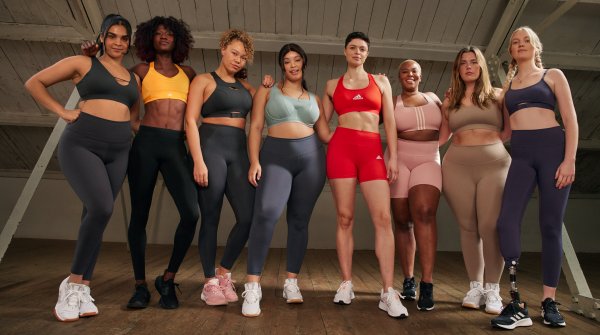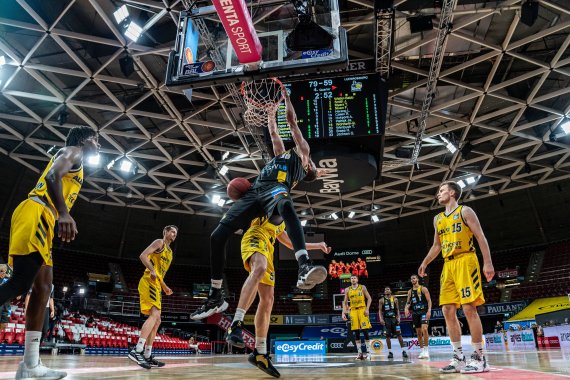
How does the restart succeed? While many companies are still asking themselves this question, professional sport has long since taken on a pioneering role in answering it. In mid-May, the German football Bundesliga was the first major sports league in the world to resume playing. The DFB-organised 3rd Division, the DFB Cup and the Women's Bundesliga have also been up and running again for some time. The German Basketball Bundesliga BBL followed in early June as the first major indoor sports league. At the ISPO Re.Start Days the heads behind the successful restarts presented their learnings.
"We had big scepticism and critics before the restart of the league," recalls Dr. Rainer Koch, Vice President of the German Football Association: "But now that the leagues and the cup seaosons will come to an end in the next weeks, I can sleep much better."
Highlights of the ISPO Re.Start Days in pictures
According to Dr. Koch, the concept of "Geisterspiele", matches played behind closed doors, had been "a very important step towards survival" for dozens of football clubs. With the hygiene concepts developed by the DFL and DFB and its status in Germany, football had also helped other sports to benefit.
"Without football we could not have played," confirmed Marko Pesic, managing director of FC Bayern Basketball. The club was one of ten teams that played in June in an unprecedented tournament for the German basketball title. For three weeks, more than 250 players and coaches were quarantined in a Munich hotel in order to award the BBL title in a mammoth tournament in the Bavarian capital.
A solution born out of necessity, which for Pesic illustrates the most important quality of associations and clubs in these times: flexibility. "We have adapted by changing the complete competition system. This is one of our greatest successes and at the same time a blueprint for similar situations in the future".
BBL Managing Director Dr. Stefan Holz is also proud of the successful restart: "We didn't have a single positive corona test case and no major injuries despite the intense schedule and short preparation time. We had thrilling games and a good quality of basketball - and we had a huge media coverage, both domestic and international. It turned out to be the best case scenario".
This is what the IOC still has to hope for after having to postpone the Tokyo Summer Olympics for a year. While this means additional costs for the IOC and host Japan, it also means more time to develop a concept and analyzing restart concepts from the world of sports: "We are using the time to discuss and identify, what works well - and we have access to the best information available," says Pierre Ducre, Associate Director of the Games Department at the IOC.
But it won't be easy: More than 10,000 athletes are to take part in the Olympics in 2021. Not even half of them have been able to qualify yet. Moreover, the protection requirements in the various disciplines are hardly comparable: Distance rules are easier to enforce in archery than in wrestling or football. Furthermore, varying travel restrictions worldwide make fair competition for the coveted Olympic tickets more difficult.
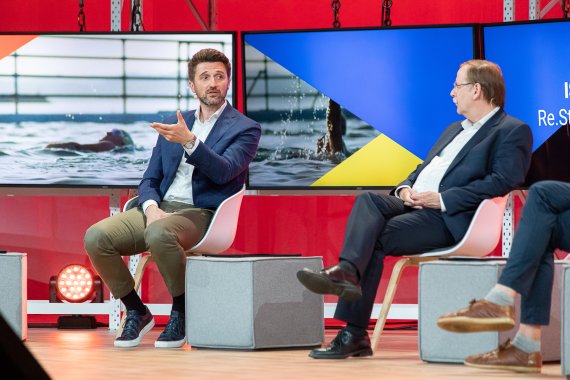
The Olympic postponement is also causing scheduling problems: Former handball world champion Dominik Klein is addressing the packed schedule for professional handball from autumn on. There will be no break until Tokyo 2021. "That's really tough," says Klein.
Nevertheless, Ducre is optimistic: "The fact that sport is returning is a very positive sign. It means that with the right conditions and the participants being protected, we can organise sport events".
But it is still unclear whether fans in the stadiums and arenas will be able to attend: "You have to look at multiple scenarios. We definitely want to have spectators. But if there are political restrictions, we, as the IOC, have to bow to adapt."
The tenor on the panel is clear: Without fans there can be no professional sport in the long run. "Then it will become critical for most clubs and federations within months," fears Dr. Koch.
Bayern Basketball boss Pesic is also hoping that politicians will soon allow spectators to buy tickets, but also warns: "Even a permitted 50 percent occupancy rate does not mean that these tickets will actually be sold. Consumer behaviour has changed."
In order to guarantee the temporary continuation of professional sport in Germany without spectators, the professional leagues in football, basketball, handball, volleyball and ice hockey have joined forces to form the interest group "Teamsport Deutschland" and have appealed to politicians for financial support. At the beginning of June, an aid package of 25 billion euros in bridging aid was actually passed.
A blessing for clubs and associations, Dr. Koch says: "In the moment we are in a dry desert having to wait for some rain - that is, revenue from ticket sales - so we are happy about every glass of water we get."
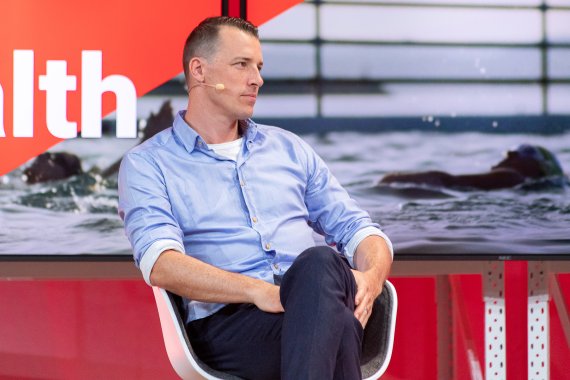
But also amateur sport is facing challenges: Although the professional football leagues are playing again, according to Dr. Koch, this is only about 50 of the more than 80,000 football matches that are normally played every weekend in Germany. Here too, clubs are dependent on politics: While in some places leagues can resume soon, teams in other German states are not even allowed to train yet: "This way we lose talents because the kids lose interest."
In handball, too, amateur teams and young players suffer the most. "Many children have not played handball for six months," says Dominik Klein. The Bavarian Handball Association is trying to counteract this with training videos for kids in social media.
Just one of many creative approaches of associations and clubs. But in the end all sides hope for an end to the restrictions, at the latest with a vaccine against Covid-19. Marko Pesic puts it in a nutshell: "The biggest motivation for athletes is to play in front of fans. I hope that as soon as possible people will be able to return to the arenas."

 Sports BusinessSki Mountaineering Goes Olympic: What Milano-Cortina 2026 Means
Sports BusinessSki Mountaineering Goes Olympic: What Milano-Cortina 2026 Means
- ISPO awards
- Mountain sports
- Bike
- Design
- Retail
- Fitness
- Health
- ISPO Job Market
- ISPO Munich
- ISPO Shanghai
- Running
- Brands
- Sustainability
- Olympia
- OutDoor
- Promotion
- Sports Business
- ISPO Textrends
- Triathlon
- Water sports
- Winter sports
- eSports
- SportsTech
- OutDoor by ISPO
- Heroes
- Transformation
- Sport Fashion
- Urban Culture
- Challenges of a CEO
- Trade fairs
- Sports
- Find the Balance
- Product reviews
- Newsletter Exclusive Area
- Magazine



